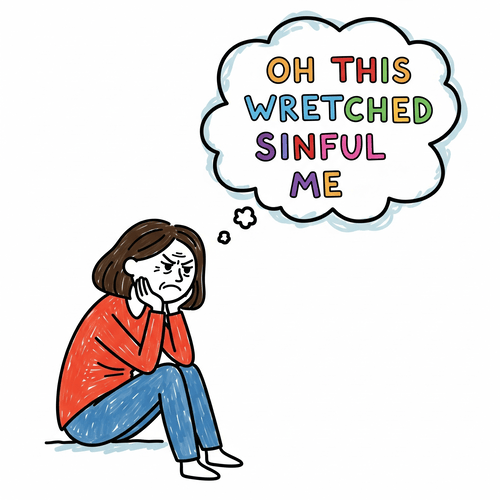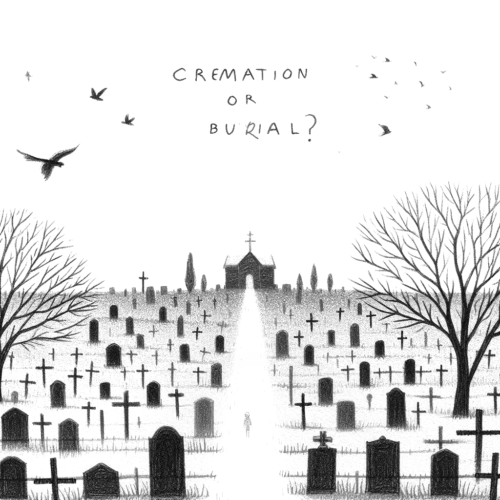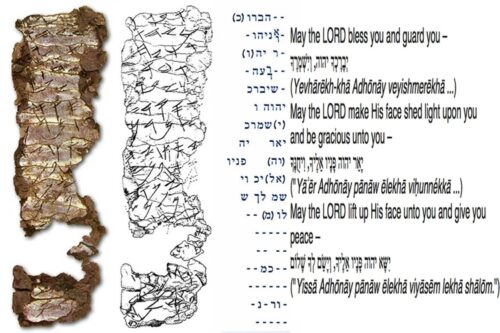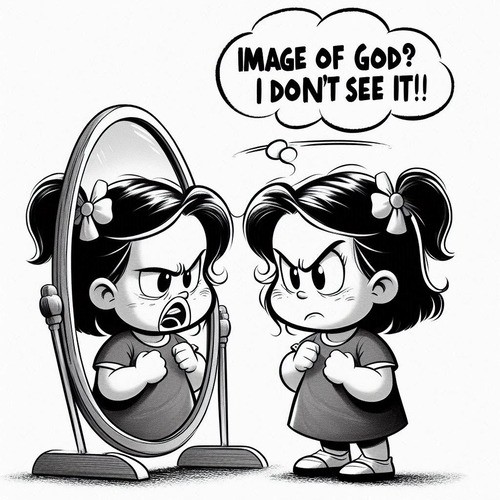End-of-Life Decisions: Can a Christian Choose Cremation Over Burial?
Many Christians have begun to wrestle with the question of cremation over traditional burial. The rising costs of funeral services, limited cemetery space in urban areas, environmental concerns, and increasingly mobile families who may have relocated far from ancestral burial grounds… These are among the many practical considerations that have contributed to a growing interest in cremation among believers.
For Christians in the Reformed tradition, the decision carries additional weight as we seek to honour both biblical principles and our theological heritage. Reformed Christianity has historically favoured burial—following the pattern of Christ’s own burial and resurrection. However, many are now asking: can a Christian Choose Cremation Over Burial?
CAN A CHRISTIAN CHOOSE CREMATION?—BIBLICAL CONSIDERATIONS
The Pattern of Burial in Scripture: Throughout the Old Testament, we find burial consistently practiced among God’s people, reflecting both cultural practice and theological significance. The careful attention given to burial practices begins with Abraham’s purchase of the cave of Machpelah to bury Sarah (Genesis 23), establishing a pattern that would continue through the patriarchs. Jacob and Joseph both gave explicit instructions about their burial, demonstrating the importance placed on proper burial in the Promised Land (Genesis 49:29-32, 50:25).
Key New Testament Themes: Most significantly, the burial of Christ stands as a central event in the gospel narrative. All four gospels record the details of Jesus’ burial in Joseph of Arimathea’s tomb, emphasising both the reality of His death and the care taken with His body. Burial would become the pattern that early Christians would follow, seeing in it both practical and symbolic significance for their own death and hope of resurrection.
The New Testament presents several crucial themes regarding the human body that inform our discussion. First, Paul’s teaching about the body as the temple of the Holy Spirit (1 Corinthians 6:19-20) establishes the fundamental dignity of the human body. This dignity extends beyond life, as demonstrated by the early church’s care for their dead.
The Blessed Hope of Resurrection: The doctrine of resurrection is perhaps the most significant biblical theme in this discussion. Paul’s extensive teaching in 1 Corinthians 15 emphasises that while our current bodies are “sown perishable,” they will be “raised imperishable.” Importantly, Paul’s teaching suggests the resurrection body, while having continuity with our earthly body, undergoes a radical transformation that transcends its physical remains.
THE REFORMED TRADITION’S FRAMEWORK
- First, The Weight of Tradition: The Reformed tradition has historically favoured burial, viewing it as the most appropriate way to honour the dead and witness to the hope of resurrection. This preference emerges from both biblical patterns and theological principles about creation and redemption. Early Reformed thinkers, following Calvin, emphasised the goodness of the created order, including the human body, and saw burial as a way of honouring this created dignity.
- If God Can Create Us From Nothing, He Can Raise us From Nothing, Too: However, Reformed theology’s emphasis on God’s sovereignty and power provides important perspective. The confession that God created ex nihilo (from nothing) forms a foundational principle: if God can create from nothing, He can certainly resurrect us regardless of the condition of our physical remains. This understanding has led Reformed thinkers to maintain that while burial may still be preferable, God’s resurrection power isn’t limited by our funeral practices.
- Liberty in Matters Where Scripture Does Not Mandate A Single Approach: The concept of Christian liberty has played an increasingly important role in Reformed thinking about burial practices. While maintaining respect for historical practices, Reformed theology recognises that many aspects of Christian life and death fall into the category of adiaphora—matters where Scripture does not mandate a single approach.
COMMON ARGUMENTS TO CONSIDER
Those opposing cremation often point to the biblical pattern of burial, the example of Christ, and the symbolism of the body “sleeping” until resurrection. They rightly emphasis the dignity of the human body and our responsibility to treat it with respect, even in death.
However, compelling arguments exist for accepting cremation as a legitimate Christian option:
- The God who created the universe from nothing can certainly resurrect a cremated body.
- The rapid decomposition of buried bodies ultimately results in the same physical state as cremation—only more slowly.
- Cremation can demonstrate good stewardship of resources and land.
- In many global contexts, cremation may also allow Christians to better connect with their communities, while maintaining their distinct hope in resurrection.
CAN A CHRISTIAN CHOOSE CREMATION?—MAKING A GOD-HONOURING DECISION
In approaching this decision, Christians should consider several factors:
- Personal convictions informed by Scripture and tradition
- Family needs and circumstances
- Stewardship of resources
- Witness to the hope of resurrection
- Local church and cultural context
Whatever choice we make, it should be accompanied by a clear Christian testimony about our hope in Christ’s return and the resurrection of the dead.
CONCLUSION: CAN A CHRISTIAN CHOOSE CREMATION?
While burial remains a meaningful option rich in Christian symbolism, cremation can be a faithful option for Reformed Christians today. The essence of our Christian hope lies not in the preservation of our physical remains, but in the promise of our glorious resurrection through Christ’s power. Whether choosing burial or cremation, believers can confidently entrust their bodies to the God who made them and who promises to raise them anew.
What matters most is not the specific method we choose, but that our decisions and ceremonies clearly proclaim the Christian hope of resurrection and new life in Christ. Both burial and cremation can serve as faithful witnesses to this hope when approached with biblical wisdom and carried out with Christian dignity…
CAN A CHRISTIAN CHOOSE CREMATION?—RELATED FAQS
What did early Reformed theologians or the Puritans say about cremation? While Calvin didn’t directly address cremation, he emphasised the dignity of the human body and the importance of burial as a testimony to resurrection hope. However, Richard Baxter, the notable Puritan, wrote that while burial was preferable, the method of disposing of the body didn’t affect God’s ability to resurrect it. Most Puritan writings focused more on preparing for death spiritually than on the specific method of handling remains.
- Does cremation affect the possibility of bodily resurrection? The power of God to resurrect is not limited by the state of our physical remains. Reformed theologians have long pointed out that martyrs burned at the stake, sailors lost at sea, and those whose bodies have completely decomposed will all be resurrected by God’s sovereign power. The same God who created the universe from nothing can certainly resurrect any body, regardless of its condition.
- What are the financial advantages of choosing cremation over burial? Cremation typically costs 40-50% less than traditional burial, with savings coming from eliminated expenses like caskets, vaults, and cemetery plots. The flexibility of cremation also allows families to hold memorial services at more convenient times, potentially reducing travel costs for attendees. Additionally, cremation eliminates ongoing expenses for grave maintenance and provides more options for final resting places.
How should Christian families handle disagreements about cremation versus burial? Families should approach this decision with grace, knowing other family members may hold sincere biblical and personal convictions. It’s wise to discuss these matters before they become urgent, allowing time for prayer, biblical reflection, and pastoral counsel. The principle of honouring parents (even after death) should be balanced with practical considerations and personal convictions.
- What options exist for memorial services with cremation that still honour Reformed traditions? Reformed churches can conduct dignified funeral services before or after cremation, maintaining traditional elements like Scripture readings, hymns, and theological reflection. Many families choose to have the body present for a viewing and service before cremation, followed by a committal service for the ashes. This approach combines meaningful Christian ceremony with practical benefits.
- Does the Bible prohibit keeping or scattering ashes? Scripture doesn’t directly address the handling of cremated remains. The key principle is treating human remains with dignity as befits those created in God’s image. While some Christians prefer interment of ashes in a columbarium or cemetery to maintain a memorial site, there’s no biblical prohibition against keeping or reverently scattering ashes in meaningful locations.
How can a Christian funeral service incorporating cremation still witness to our resurrection hope? A Christian service can powerfully proclaim resurrection hope through the chosen Scripture readings, hymns, and pastoral message, regardless of the form of disposing the body. The focus should be on Christ’s victory over death rather than the state of earthly remains. Many Reformed churches successfully incorporate meaningful Christian symbolism and teaching into services involving cremation, emphasising that our hope lies not in the preservation of physical remains but in Christ’s promises.
CAN A CHRISTIAN CHOOSE CREMATION?—OUR RELATED POSTS
Editor's Pick

From Rock to Stumbling Block: Why Jesus Called Peter Satan
In the span of just six verses (Matthew 16:13-28), Peter goes from receiving the highest praise from Jesus to getting [...]

Can Repentance be Real If We Struggle With Habitual Sin?
We’ve been there before. The weight of conviction sinks in as we realise we’ve fallen into the same sin. All [...]
The Ketef Hinnom Scrolls: An Accidental Yet Phenomenal Find
SMALLER THAN OUR PALM, OLDER THAN THE DEAD SEA SCROLLS In 1979, a bored 13-year-old volunteer at an archaeological dig [...]

Caught in Adultery: How Reliable Is the John 8 Story?
"Let him who is without sin cast the first stone." Few Bible scenes capture Jesus' wisdom and grace quite like [...]

What Did the Inscription on Jesus’ Cross Really Say?
A REFORMED RESPONSE TO CLAIMS OF GOSPEL CONTRADICTIONS Sceptics love to point out what they see as a glaring contradiction [...]

Biblical and Systematic Theology: Why Do We Need Both?
TWO LENSES, ONE TRUTH Picture this familiar scene: A seminary student sits in the library, torn between two stacks of [...]

The Mysterious Two: Who Are the Anointed Ones in Zechariah?
Picture this: a golden lampstand blazing with light, flanked by two olive trees that pour oil directly into the lamp’s [...]

Regeneration Or Faith? Which Comes First in Salvation?
In the moment of salvation, does God regenerate our hearts first, or do we believe first? How we answer this [...]

Interracial Marriages: Does God Frown On Them?
The question hits close to home for many Christian couples and families today. As our churches become increasingly diverse, believers [...]
‘Because Angels Are Watching’: What Does 1 Corinthians 11:10 Mean?
“For this reason the woman ought to have authority on her head, because of the angels” (1 Corinthians 11:10, ESV). [...]
SUPPORT US:
Feel the Holy Spirit's gentle nudge to partner with us?
Donate Online:
Account Name: TRUTHS TO DIE FOR FOUNDATION
Account Number: 10243565459
Bank IFSC: IDFB0043391
Bank Name: IDFC FIRST BANK








